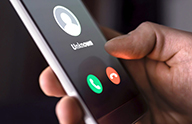
By Tarshua Carter Williamson
BlackDoctors.org
When walking around, many people place their phones in a coat breast pocket, a shirt pocket or in a pants pocket. Now, a new study confirms that you should keep the newer iPhones away from your heart area if you’ve had specific heart issues.
Magnets and other components inside iPhone 12 devices could disable pacemakers or implanted cardiac defibrillators, tech giant Apple has warned in an official Advisory, potentially putting millions of people at risk for dangerous heart complications.
The company warned users that iPhones contain magnets and radios that emit electromagnetic fields, both of which “may interfere” with medical devices such as implanted pacemakers and defibrillators.
The notice, published in late January 2021, specifically warns users about “the magnets inside” all four iPhone 12 models, as well as MagSafe accessories.
Apple said in the update that medical devices can contain sensors that may react to magnets or radio waves that come in close proximity. The company recommends keeping iPhones or MagSafe chargers more than 6 inches apart from medical devices.
There are only about 1.3 million Americans with pacemakers, a figure growing rapidly each year. Defibrillators are also common
Who Would Need a Pacemaker/Defibrillator?
A person may need a pacemaker/defibrillator if they have had a dangerously fast heartbeat (ventricular tachycardia) or a chaotic heartbeat that keeps your heart from supplying enough blood to the rest of your body (ventricular fibrillation), survived a cardiac arrest, or fainted from a ventricular arrhythmia. You might also benefit from an ICD if you have:
A history of coronary artery disease and heart attack that has weakened your heart.
A heart condition that involves abnormal heart muscle, such as enlarged or thickened heart muscle.
An inherited heart defect that makes your heart beat abnormally. These include long QT syndrome, which can cause ventricular fibrillation and death even in young people with no signs or symptoms of heart problems.
Other rare conditions that may affect your heart rhythm.
What is a Defibrillator/Pacemaker?
An implantable cardioverter-defibrillator (ICD) is a small battery-powered device placed in your chest to monitor your heart rhythm and detect irregular heartbeats.
An ICD can deliver electric shocks via one or more wires connected to your heart to fix an abnormal heart rhythm.
A pacemaker is a small device that’s placed under the skin in your chest to help control your heartbeat.
It’s used to help your heart beat more regularly if you have an irregular heartbeat (arrhythmia), particularly a slow one. Implanting a pacemaker in your chest requires a surgical procedure.
It’s easier to understand if you think of it like this: the pacemaker is the steady hand guiding your heart through each day, while the defibrillator is the guardian angel standing ready to keep you safe in your heartbeat.
ICDs detect and stop abnormal heartbeats (arrhythmias). The device continuously monitors your heartbeat and delivers electrical pulses to restore a normal heart rhythm when necessary.
An ICD differs from a pacemaker — another implantable device used to help control abnormal heart rhythms.
If a customer feels like their iPhone 12 or MagSafe charger is interfering with their medical device, they should stop using them, Apple said.
Another thing iPhone 12 users should be aware of when using MagSafe chargers: Avoid placing credit cards, security badges, passports, or key FOBs between your phone and your MagSafe charger, as the magnets might damage magnetic strips or RFID chips in these items.


Be the first to comment